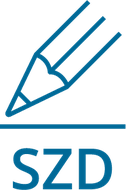Jul 31, 2023
Inside the Writing Center: AI and Writing Center
Since the chatbot ChatGPT was released in November 2022, there has been much discussion about the potential and challenges that artificial intelligences pose for writing in general and academic writing in particular. At the TU Dresden Writing Center, we have offered our first exchange and workshop formats for students and faculty this semester, focusing on the expectations, experiences, potentials, and challenges of AI tools for academic writing. Ulrike Samuelsson answered three questions about writing center work and AI for this "Inside the Writing Center":
Why do we need writing didactics and writing tutors when we can be supported in scientific writing by generative AI systems such as ChatGPT?
The development and use of AI has already led to a change in (scientific) writing, the consequences of which are hardly foreseeable in view of the rapid further development of the technology. However, in order to ensure that artificial intelligence does not overrun society, but rather assists in the implementation and solution of urgent tasks and challenges of the present and future, writing didactics and writing tutors have special tasks and responsibilities: to know and convey knowledge about the differences, possibilities, and limitations of machine-based versus human-based writing, as well as the ability to critically reflect on the potentials of these two worlds for society, to use them, and to combine them in a meaningful way. In very concrete terms, writing didacticians and writing tutors support and advise students and teachers on ways to use AI writing tools for the writing process (e.g., literature research, outlining, question posing), while at the same time communicating the limitations of AI systems such as ChatGPT and remaining irreplaceable as human exchange partners and experts in scientific writing, because "those who completely hand over critical reflection to machines also hand over to machines the responsibility for the conclusions that should be drawn from scientific findings." (Diskussionspapier 23 „10 Thesen zur Zukunft des Schreibens in der Wissenschaft“, HS-Forum Digitalisierung, 06/2023 auf researchgate.net)
What challenges do students face as a result of these new developments, and how might writing centers address them?
Students working with AI writing tools need to address issues such as plagiarism and independence (e.g., What is my university's position on this?). They also need to know that AI-generated texts are highly opaque, vary widely in quality, and may contain errors and biases (see related Handout of the Writing Center of Goethe University Frankfurt a. Main on the use of AI writing tools by students, in German).
In general, students should exchange information about their writing projects, e.g. with fellow students, teachers and writing tutors. In this way, they not only become more confident in dealing with scientific work, the conventions of their subject and the current subject discourse, but also learn to evaluate, improve and, if necessary, use AI-generated texts. Writing centers offer various training and exchange formats for this purpose.
In this context, what support services does SZD provide for lecturers who supervise and evaluate written work?
In addition to individual teaching advice, we are specifically offering the next workshop (in German) for teachers on the topic on September 6: KI Schreib-Tools: Einbindung in die Lehre.
The interview was conducted by Sharon Király. Sharon studied European languages at TU Dresden, has been giving writing consultations at the Writing Center since 2018, and has been working in the project team at SZD since 2022.
 © Crispin-Iven Mokry
© Crispin-Iven Mokry
former consultant for writing didactics
NameSharon Király
Send encrypted email via the SecureMail portal (for TUD external users only).
Writing Center of TUD
Writing Center of TUD
Visiting address:
Fritz-Foerster-Bau Mommsenstr. 6
01069 Dresden
Postal address:
TUD Dresden University of Technology
Technische Universität Dresden
Zentrum für Weiterbildung
Projekt Schreibzentrum
01069 Dresden
This post appeared on the occasion of the August 2023 Writing Center Newsletter. This and other newsletter issues are linked in the Writing Center Newsletter Archive.
 © TUD
© TUD
Writing Center of TUD
Send encrypted email via the SecureMail portal (for TUD external users only).
Visiting address:
Fritz-Foerster-Bau, room 571 Mommsenstr. 6
01069 Dresden
Postal address:
TUD Dresden University of Technology
Zentrum für Weiterbildung/Career Service
Schreibzentrum
01062 Dresden
translated with deepl.com

